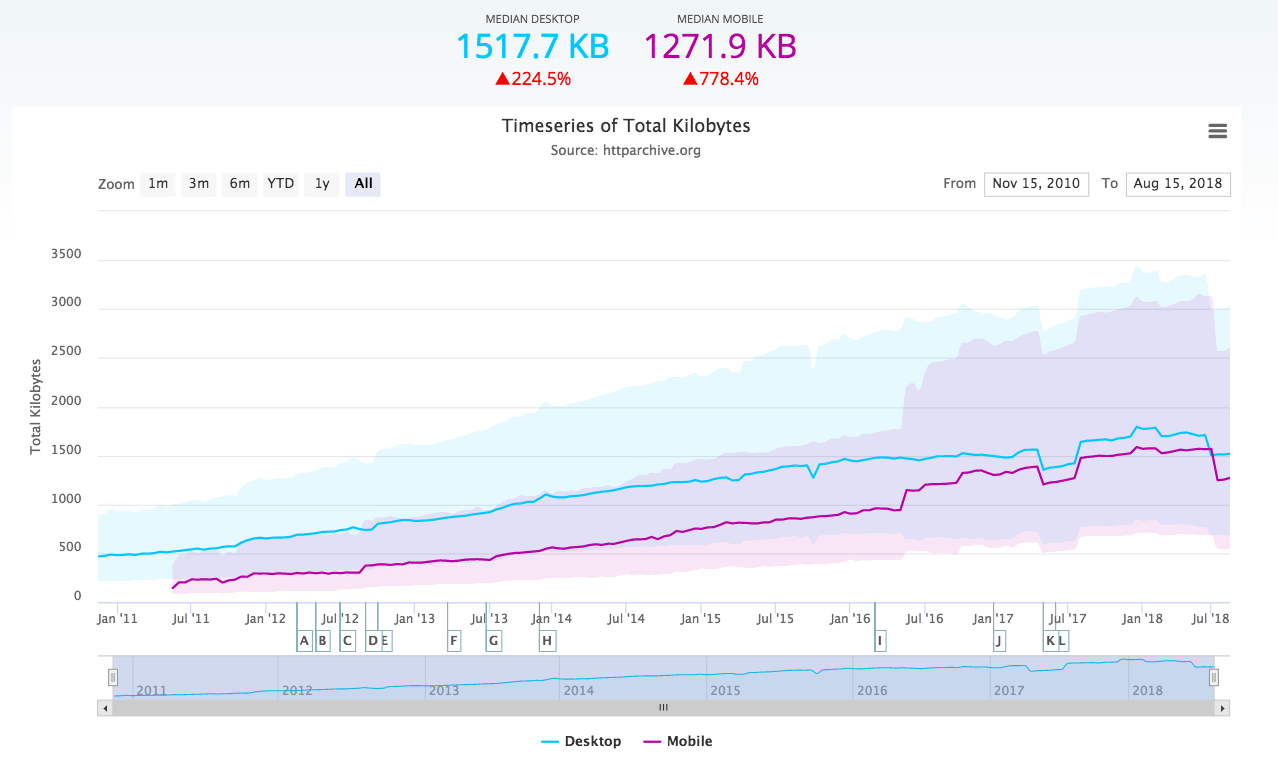 In June Google launched a Web community with the specific long-term goal to make the Web faster. The tone of Google’s presentation when launching this initiative was very much “let’s do this for the good of the world”.
In June Google launched a Web community with the specific long-term goal to make the Web faster. The tone of Google’s presentation when launching this initiative was very much “let’s do this for the good of the world”.
Here is a section from the FAQ, explaining why Google wants to speed up the Web:
Improving the speed of the web will help not just Google but the entire web community because it will:
- Increase the number of internet users globally, thus making information more accessible
- Help developers produce better more responsive web apps, comparable in performance to desktop apps. This will make the web more engaging to current users, who will start using it more, for tasks that until now were only possible in desktop apps
- Help new applications and markets emerge
Overall we believe that speeding up the web will improve the quality of life for hundreds of millions of people.
Although we like the altruistic aspects of this, it’s worth noting that Google is looking out for number one here. Google is doing this because it’s good for Google.
Google’s business model is entirely dependent on the Web, and even minor improvements of the Web overall will affect Google’s bottom line more than most other companies due to the scale of its operations. It’s in Google’s own best interest to make the Web as fast and as widely used as possible.
Some of the main benefits for Google would be:
- Faster crawling: Faster websites and faster communications means it’s easier and faster for Google to crawl the information available, a necessary criterion for the real-time Web everyone is talking about these days. Faster crawling might even provide cost savings because less time will spent on downloading pages.
- More ad impressions: Faster web pages will mean less aborted page downloads, which leads to more page views, which will help Google because statistically this means more ads can be served.
- More Internet users: One side effect of a faster, better Internet is more users. And few companies are better positioned to benefit from this than Google as they can expand their “customer base” even more.
- Improving the viability of the Web as a platform: The Chrome OS, anyone? If the Web is ever going to become THE platform for our applications, it needs to become a lot faster and more responsive.
- It’s good for Google’s datacenters: This is connected with the point above; the Web as a platform. Google’s “cloud” essentially consists of multiple interconnected datacenters (lots of them). The faster and more efficient the Internet becomes, the better these datacenters can work together.
In the end, this all translates into one thing: More money for Google.
Ultimately, the more people that use the Web, the more people can use Google’s products in one manner or the other. The more people that use Google’s products, the more statistics and data it can collect, and the more page views there are in the world, the more Google ads can be served, and so on. And thanks to Google’s scale, they can benefit from this probably more than any other company in the world.
We’re not complaining, though. Regardless of the motives, getting a faster Internet is a good thing for everyone (including many of Google’s competitors). There’s nothing that says you can’t be self-serving and do good at the same time, as long as your goals are in line with those of the general population.
We’re curious, though… What are your thoughts on this, dear readers?


























